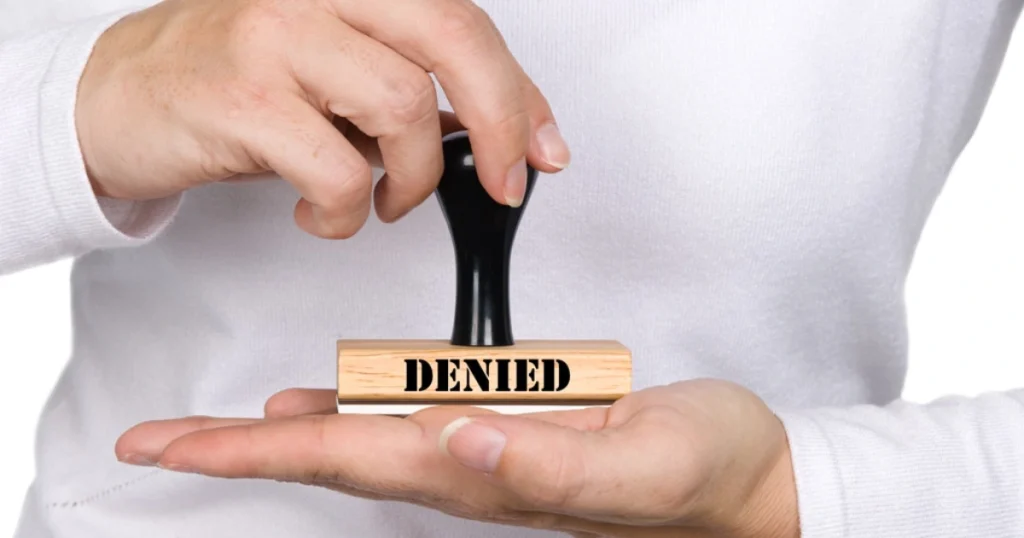In the fast-paced world of healthcare, billing errors are a major obstacle that slows down the revenue cycle. One of the most common challenges healthcare providers face is claim denials. Insurance companies use medical denial codes to reject claims for a variety of reasons. Understanding the top 10 denial codes in medical billing is essential for improving claim acceptance rates, streamlining the billing process, and ultimately ensuring timely payments. In this blog, we will explore these denial codes, how to prevent them, and strategies to reduce their impact on your practice’s financial health.
Table of Contents
ToggleWhat Are Common Denials in Medical Billing?
In medical billing, denials are a natural part of the process, but they can be a significant source of frustration if not properly addressed. Denial codes in medical billing are issued by insurance companies when claims fail to meet the necessary requirements for reimbursement. Common denials can occur for several reasons, such as incorrect coding, missing patient information, or issues with pre-authorization. Understanding these common reasons is the first step toward reducing claim denials and improving your overall claim acceptance rates. Addressing these common issues proactively can save your practice time and money.
Top 10 Denial Codes in Medical Billing
The top 10 denial codes in medical billing are the most common reasons healthcare providers face claim rejections. These denial codes highlight the errors or issues with the claims that prevent insurers from processing them. From incorrect coding to duplicate claims, understanding each denial code is critical in addressing the root causes and preventing future denials. Here’s a breakdown of the most common denial codes in medical billing, their meaning, and tips on how to avoid them:
| Denial Code | Description | Reason for Denial | Preventive Action |
| CO 4 | Missing Modifier | A required modifier is missing or incorrectly applied. | Ensure correct modifier is attached to the procedure code and double-check for accuracy. |
| CO 11 | Incorrect Coding | Procedure code does not match the service provided. | Use the correct CPT/HCPCS code for the procedure, and consult coding guidelines regularly. |
| CO 16 | Incorrect or Missing Information | Missing or incorrect information (e.g., patient details or modifier). | Verify all patient data, service dates, and ensure all required information is included in the claim. |
| CO 18 | Duplicate Medical Claim | Same claim has been submitted more than once. | Cross-check claims before submission to ensure no duplicates. If denied, review the claim to identify the issue. |
| CO 22 | Coordination of Benefits | Patient has another insurance plan, making the second insurer responsible. | Verify all insurance details with the patient and check coordination of benefits rules before submitting. |
| CO 27 | Expired Insurance Coverage | The patient’s insurance coverage has expired at the time of treatment. | Confirm active coverage before providing services. If denied, communicate with the patient or file an appeal. |
| CO 29 | Late Submission | The claim was submitted after the insurer’s required submission deadline. | Ensure timely submission by setting up a claims submission reminder system. |
| CO 45 | Billed Amount Exceeds the Fee Schedule | The billed amount is higher than the maximum allowable fee set by the insurer. | Verify the payer’s fee schedule to avoid overbilling. Reduce billed amounts to match the insurance limits. |
| CO 97 | Already Adjudicated Service | The service has already been adjudicated as part of a different procedure. | Review the adjudication history of services before submitting new claims. |
| CO 167 | Non-Covered Services | The insurance plan does not cover the service performed or the diagnosis is deemed unnecessary. | Confirm coverage and medical necessity with the insurer before offering services. Appeal if necessary. |
Denial Code 4 – Missing Modifier
CO 4 – Missing Modifier is one of the most common denial codes in medical billing. This code is issued when the claim is missing a required modifier that provides additional information about the service performed. Modifiers are typically two-character codes that are appended to the CPT or HCPCS codes to specify details like the location of the service or whether multiple procedures were performed. Without the correct modifier, insurance companies may reject the claim.
Prevention Tips:
- Always verify that the correct modifier is included before submitting the claim.
- Ensure that modifiers are consistent with the services or procedures performed.
- If denied, review the claim to ensure the correct modifier is applied and resubmit the claim.
Denial Code 11 – Incorrect Coding
CO 11 – Incorrect Coding is a frequent denial code in medical billing. This code appears when the procedure code submitted on the claim doesn’t match the service that was actually performed. Incorrect coding can happen for several reasons, such as using outdated codes or confusing similar codes. Ensuring accurate and up-to-date coding is essential for successful claim submissions.
Prevention Tips:
- Stay current with the latest CPT codes and guidelines to prevent coding errors.
- Conduct regular code audits and ensure that every procedure is billed with the correct code.
- In case of a CO 11 denial, review the medical documentation to verify the appropriate code, correct any discrepancies, and resubmit the claim.
Denial Code 16 – Incorrect or Missing Information
CO 16 – Incorrect or Missing Information is one of the most frequently encountered denial codes in medical billing. This code is issued when essential details, such as patient information, diagnosis codes, or procedure codes, are missing or incorrect on the claim. Insurance companies require complete and accurate information to process claims efficiently, and any discrepancies can lead to claim rejection.
Prevention Tips:
- Ensure that all patient information (name, date of birth, insurance details) is accurate and up-to-date.
- Double-check diagnosis codes and procedure codes to ensure they match the provided service.
- If denied, promptly correct the missing or incorrect information and resubmit the claim.
Denial Code 18 – Duplicate Medical Claim
CO 18 – Duplicate Medical Claim is a denial code issued when an insurance provider identifies that a claim has been submitted more than once for the same service. Duplicate claims can happen unintentionally, especially when multiple parties handle billing, or due to clerical errors. Insurance companies track claims carefully, and they will reject any claim that appears to be a duplicate of one already processed.
Prevention Tips:
- Implement a claim tracking system to ensure each claim is submitted only once.
- Double-check claim details before submission to avoid unintentional duplicates.
- If you receive a CO 18 denial, confirm that the claim hasn’t been submitted previously and take corrective action by resubmitting the correct claim.
Denial Code 22 – Coordination of Benefits
CO 22 – Coordination of Benefits is issued when the insurance company determines that the patient has multiple insurance plans, and the claim needs to be coordinated between the providers. This denial typically occurs when the insurer believes that another insurance company should cover the costs of the treatment based on the Coordination of Benefits (COB) rules.
Prevention Tips:
- Always verify the patient’s insurance information and confirm whether they have secondary or tertiary coverage.
- Understand how COB rules work to ensure that claims are directed to the correct payer.
- If denied, contact the primary insurance and resubmit the claim to the correct insurance provider for payment.
Denial Code 27 – Expired Insurance Coverage
CO 27 – Expired Insurance Coverage occurs when a patient’s insurance coverage has expired at the time of service. Insurance providers issue this denial code to indicate that the coverage was no longer valid when the services were provided, leading to a rejection of the claim. This can cause delays in payment, as the provider must often seek alternative payment options from the patient or re-submit claims with updated coverage details.
Prevention Tips:
- Always verify the insurance coverage status before providing services, especially for recurring treatments or long-term care.
- Ensure you have the most current insurance information from your patients.
- If you receive a CO 27 denial, contact the patient for clarification and submit the claim to the correct insurance provider or file an appeal with supporting documentation.
Denial Code 29 – Late Submission
CO 29 – Late Submission is a denial code issued when a medical claim is submitted after the insurance company’s deadline for filing. Insurers typically have a set period, usually 30 to 90 days, within which claims must be filed after the date of service. Claims submitted beyond this window are considered invalid and are rejected. To prevent delays in payment, it’s essential to submit claims within the allowed timeframe.
Prevention Tips:
- Ensure you are familiar with the timely filing limits set by each insurance provider.
- Set up an efficient system to track and submit claims promptly.
- If you receive a CO 29 denial, investigate the reason for the late submission, collect necessary supporting documentation, and appeal the decision if applicable.
Denial Code 45 – Billed Amount Exceeds the Schedule Fee
CO 45 – Billed Amount Exceeds the Fee Schedule is a denial code issued when the billed amount for a service exceeds the maximum allowable fee set by the insurance provider in their fee schedule. Insurance companies have predetermined rates for services, and billing higher than these rates can result in claim rejection. Healthcare providers must ensure that they are billing within the allowed fee limits to avoid this denial.
Prevention Tips:
- Always review the fee schedule before submitting claims to ensure that the billed amount aligns with the maximum allowable rate.
- Cross-check the contractual rates with each insurance company for covered services.
- If denied, reduce the billed amount to match the fee schedule and resubmit the claim for processing.
Denial Code 97 – Already Adjudicated Service
CO 97 – Already Adjudicated Service is a denial code that occurs when a service or procedure has already been processed as part of another claim. This typically happens when multiple claims for similar services are submitted for the same treatment. The insurance company may reject the second submission with this code because the claim has already been adjudicated as part of another service, and the reimbursement has been processed.
Prevention Tips:
- Double-check that a claim has not already been submitted for the same service.
- Review the adjudication history to ensure that services are not being billed twice.
- If you receive a CO 97 denial, verify if the service has already been processed, and resubmit the claim with the correct modifier if necessary.
Denial Code 167 – Non-Covered Services
CO 167 – Non-Covered Services is a denial code that occurs when the service provided is not covered under the patient’s insurance plan. Insurance providers issue this denial when they determine that the procedure or treatment is not included in the patient’s benefits, often due to the service being considered medically unnecessary or excluded from coverage.
Prevention Tips:
- Before providing services, verify the patient’s insurance coverage to ensure the service is included.
- Familiarize yourself with the insurance guidelines for covered and non-covered services.
- If denied, provide medical necessity documentation and appeal the decision with the insurance provider to reconsider coverage.
Frequently Asked Questions
What are common denials in medical billing?
Common denials in medical billing include issues like incorrect coding, missing modifiers, expired insurance coverage, and late submissions. These denials can be prevented with thorough claim verification and accurate documentation.
What is CO 97 denial?
CO 97 is a denial code issued when a service has already been processed as part of another claim. This typically happens when a procedure has been billed multiple times under different claims.
What is denial code CO 27?
CO 27 refers to a denial when the patient’s insurance coverage has expired. It means that the insurance provider rejected the claim because the patient’s plan was no longer active at the time of service.
What is denial code 10?
CO 10 is a denial code that indicates the procedure or service provided is not covered under the patient’s insurance plan. This can happen if the treatment is deemed medically unnecessary or excluded from coverage.
Conclusion
Understanding the top 10 denial codes in medical billing is essential for healthcare providers to reduce claim rejections and improve the revenue cycle. By identifying common issues such as incorrect coding, missing information, and expired insurance coverage, practices can take proactive steps to minimize denials and ensure smoother claim submissions. Regular audits, accurate documentation, and timely submission are key to preventing these denials. If managing denials becomes overwhelming, outsourcing denial management services can help streamline the process and improve cash flow. Always stay informed and prepared to handle these challenges for the success of your practice.





